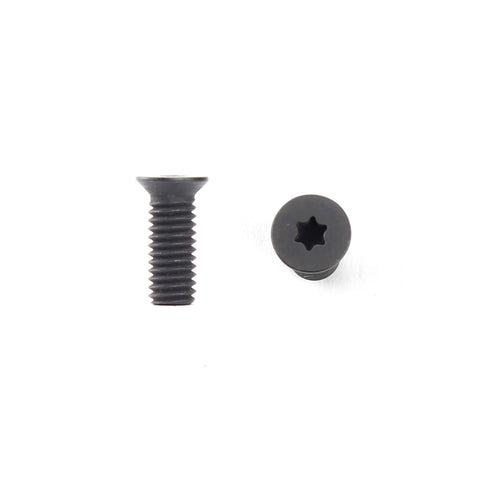The Precision and Performance of Flat Head Machine Screws
In the vast world of fasteners, flat head machine screws hold a distinctive place, prized for their ability to deliver precise and dependable results in a variety of applications. Their unique design and functional attributes make them an essential component in both industrial and DIY settings, where the need for a flush, secure fastening solution is paramount. By understanding the features and benefits of flat head machine screws, one can appreciate why they are favored for their performance and versatility.
Flat head machine screws are characterized by their low-profile, countersunk head design. Unlike other screw types with domed or rounded heads, the flat head is designed to sit flush with or below the surface of the material once installed. This design allows for a smooth, even surface, which is crucial in applications where aesthetics and functionality converge. For example, in woodworking and cabinetry, a flush finish ensures that the screw does not interfere with the overall appearance of the piece, allowing for a clean, professional look.
The countersunk head of these screws is engineered to match a corresponding countersunk hole, providing a secure and stable fit. This design feature is particularly advantageous in scenarios where protruding screws could be problematic, such as in machinery or consumer products where a flush finish is not just about aesthetics but also about ensuring safety and usability. By aligning the screw head with the surface, flat head machine screws reduce the risk of snagging or damage, contributing to a more refined and functional end product.
The performance of flat head machine screws is also enhanced by their threading and material composition. Typically, these screws are made from high-strength materials such as steel, stainless steel, or brass, offering a range of mechanical properties to suit different applications. Steel flat head machine screws, for instance, provide robustness and durability, making them suitable for heavy-duty use. Stainless steel variants, with their excellent corrosion resistance, are ideal for environments exposed to moisture or chemicals. Brass screws, on the other hand, are chosen for their aesthetic appeal and resistance to tarnishing, often used in decorative applications.
The threading on flat head machine screws is designed to engage with corresponding tapped holes or nuts, ensuring a strong and reliable connection. The precision of the threads allows for a tight fit, which is crucial for maintaining the structural integrity of assemblies and preventing loosening over time. This precision makes flat head machine screws a preferred choice for applications requiring exact alignment and secure fastening, such as in electronic enclosures, automotive components, and precision machinery.
Another notable aspect of flat head machine screws is their compatibility with a variety of drive types. These screws can be equipped with different drive styles, including Phillips, slotted, or Torx. This versatility allows for the use of various tools, accommodating different preferences and operational requirements. For instance, the Phillips drive provides enhanced grip and reduced cam-out, making it suitable for applications requiring high torque. The slotted drive, though less common in modern applications, offers simplicity and ease of use. The Torx drive, known for its resistance to stripping, is often used in high-torque applications where a secure fit is critical.
Installation of flat head machine screws is generally straightforward, but attention to detail is important to achieve the desired results. Ensuring that the countersunk hole is properly sized and aligned with the screw head is crucial for a flush finish. Additionally, using the correct drive tool and applying appropriate torque helps prevent damage to both the screw and the workpiece. Proper installation ensures that the screw performs as intended, providing a stable and secure fastening solution.
Maintenance of flat head machine screws involves regular inspection to ensure they remain in good condition. In high-stress applications or environments with exposure to elements, checking for signs of wear or corrosion can help maintain the integrity of the assembly. For stainless steel screws, occasional cleaning may be necessary to preserve their appearance and prevent buildup of contaminants.
The versatility and performance of flat head machine screws extend across a wide range of industries and applications. In the aerospace and automotive sectors, they are used to secure components in engines, assemblies, and panels, where precision and strength are critical. In electronics, flat head machine screws are employed in securing circuit boards and enclosures, where a flush finish prevents interference with other components. In construction and woodworking, their ability to provide a clean finish makes them ideal for furniture and structural applications.
In conclusion, flat head machine screws are a vital component in achieving precise, flush, and secure fastenings. Their unique design, coupled with high-strength materials and versatile drive options, makes them an excellent choice for a variety of applications. Whether used in machinery, electronics, or decorative projects, flat head machine screws deliver performance and reliability, ensuring that your projects meet the highest standards of quality and functionality.

